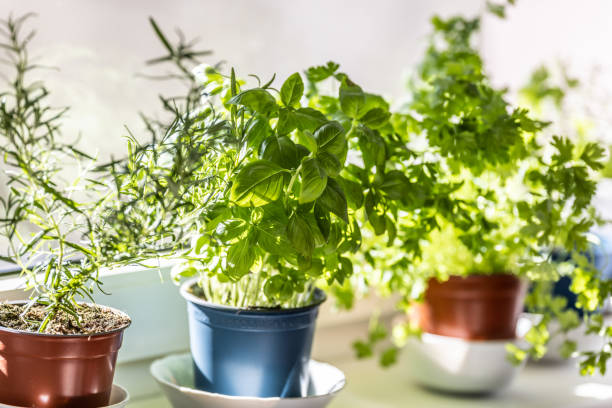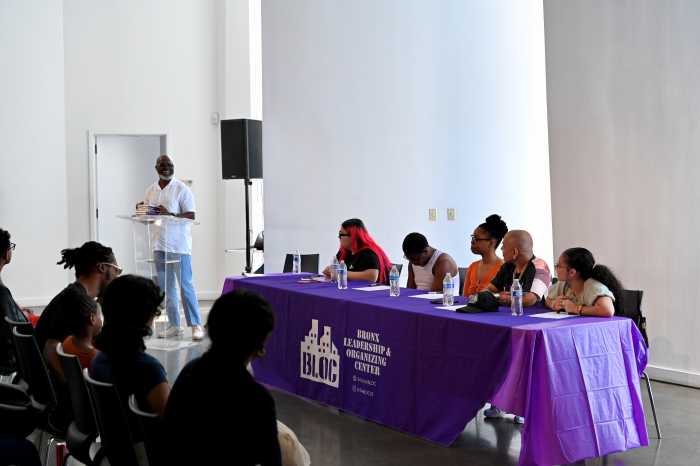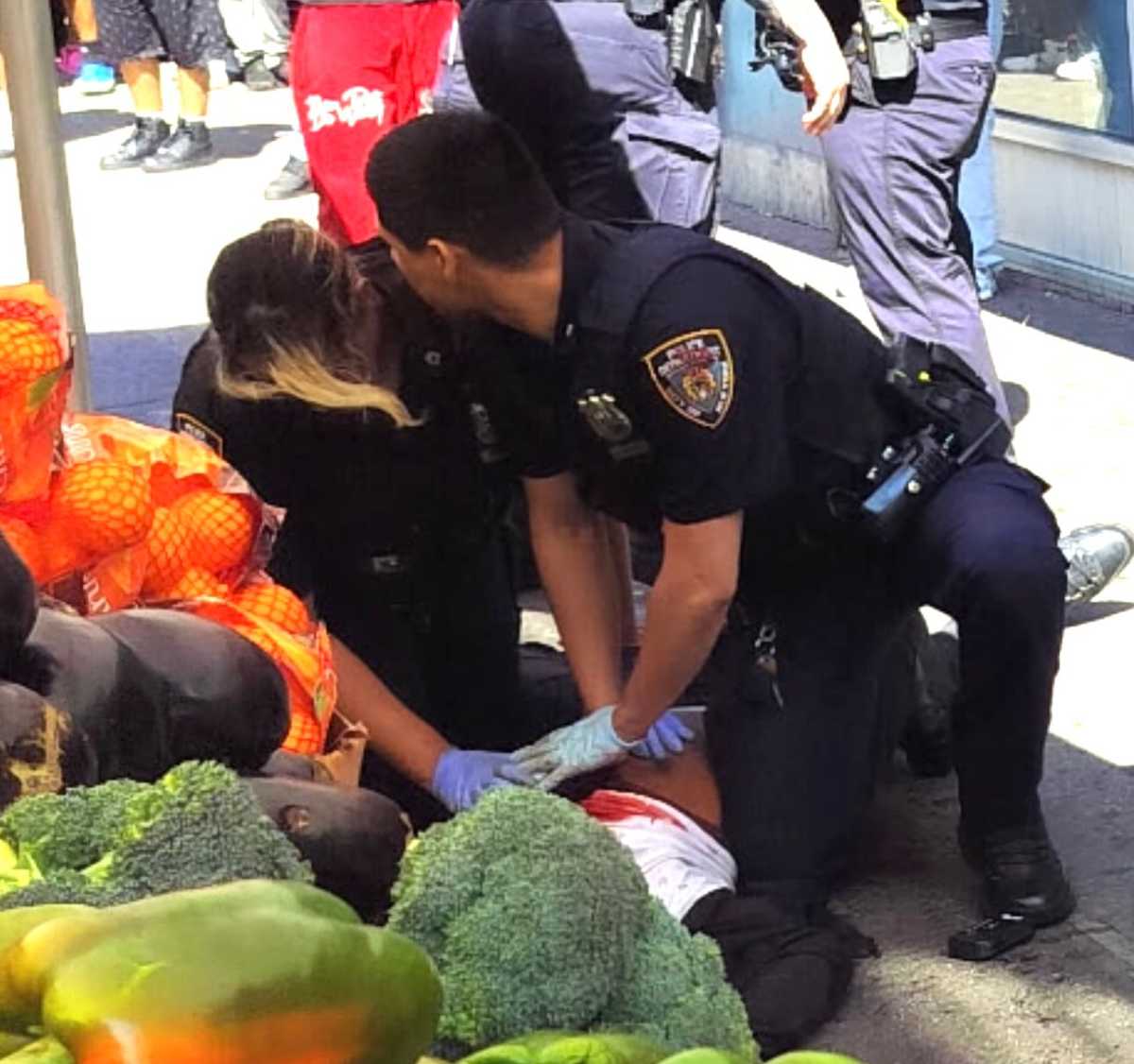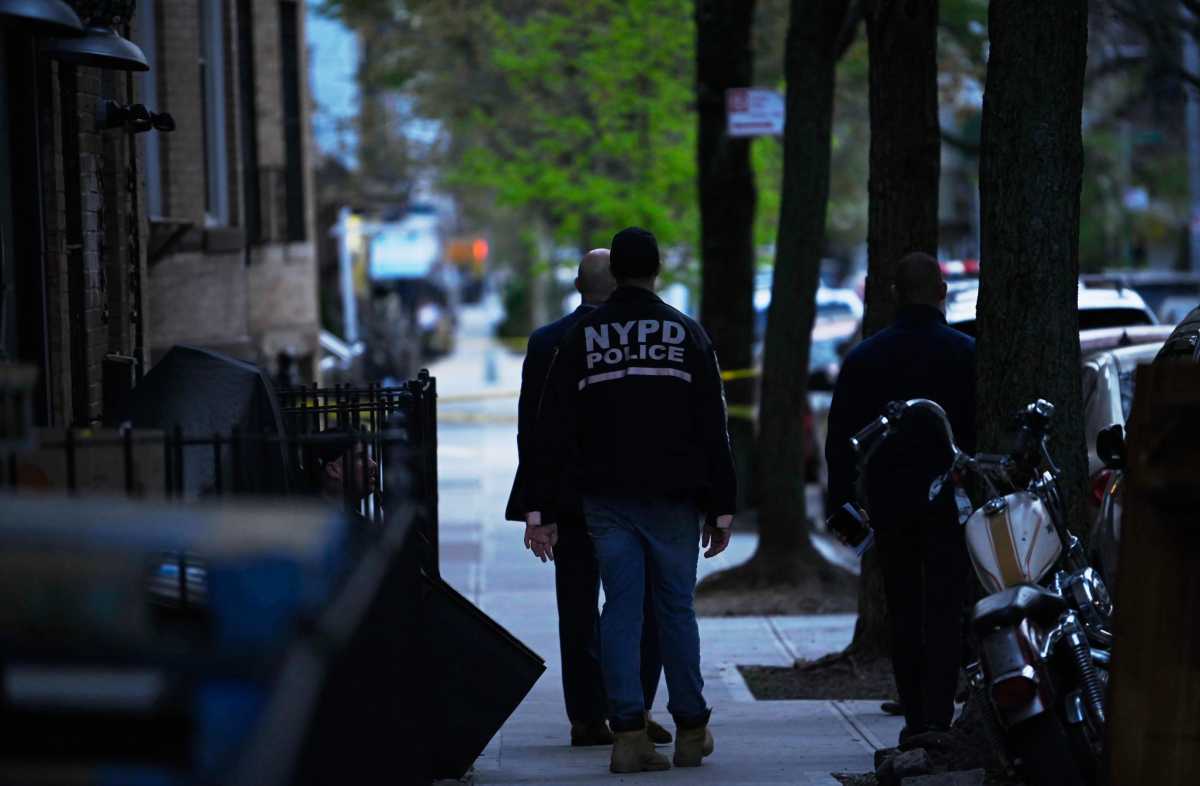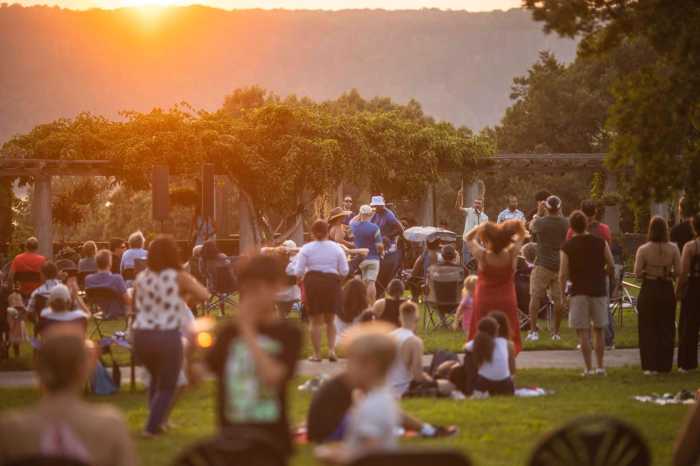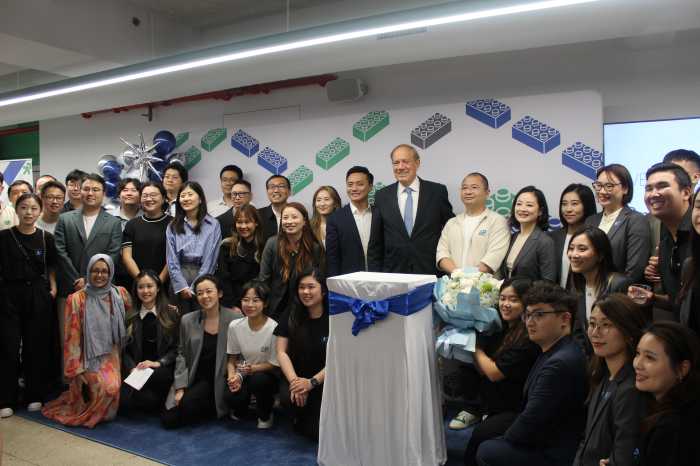Wakefield native Brittney Russell’s new documentary “You Are Not Alone” deals with one of the most pressing public health disparities in the Bronx: Black maternal health. The project, Russell’s first film, screened in December at the Bronx Museum of the Arts and is now entered into the festival circuit.
Russell attended SUNY Old Westbury as a biology major and thought she would go to medical school. But a chance conversation with her dentist, who performs free dental work around the world, led her to spend two weeks photographing the work in Ghana and Nigeria. There, she realized that medical stories are just as important as the practice. The world of healthcare was “so much more beyond medicine in a white coat,” Russell said.
In October 2019, Russell got into Harvard’s Media and Medicine program, where she set out to explore the disparities she saw every day as a Bronxite. Despite the borough’s strong communities, vibrant culture and famous attractions, significant disparities existed in terms of asthma rates, environmental justice and more. “Why was the Bronx was last in everything?” Russell wondered.
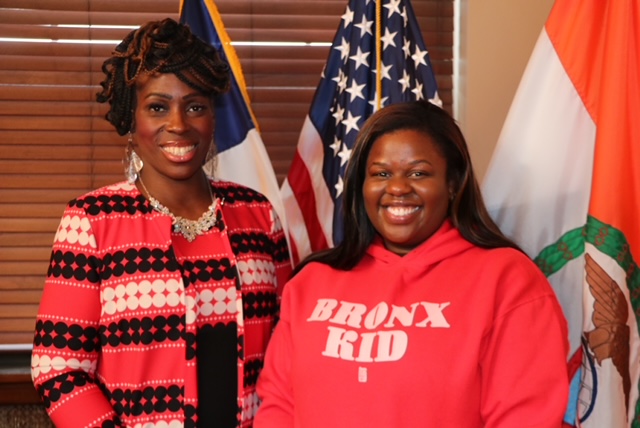
She even saw it in her job inspecting childcare facilities and schools for the Department of Health and Mental Hygiene. Families in the Bronx lived very differently than families in wealthier, whiter neighborhoods, and sometimes, despite the childcare provider’s best efforts, the very buildings Bronx children were growing up in were not up to par.
Russell began interviewing friends who had negative childbirth experiences at Bronx hospitals and found it no surprise that maternal mortality rates, especially for Black women in the Bronx, are much higher than would be expected in a wealthy developed country.
The maternal mortality rate for Black women is five times higher than for white women, according to New York state data from March 2024. The study also found that C-section births resulted in three times higher mortality rates than vaginal births and that 73% of pregnancy-related deaths had “at least some chance of being prevented.”
Birthing gone wrong
For the documentary, Russell interviewed Bronx Borough President Vanessa Gibson, who has made Black maternal health one of her signature issues and advocated for the Bronx to finally got its own birthing center, Maryam.
Russell also interviewed two doulas and two women whose experiences giving birth in Bronx hospitals scarred them for a lifetime, physically and emotionally.
“They go with a birth plan, and they’re told all the time, ‘No, we’re gonna do the C- section. We’re gonna do what’s best for you,” said Russell.
For the project, she interviewed a friend who was 23 when she gave birth to her first child, now six years old. Despite the plan to have a vaginal birth, she ended up having a C-section — only because the hospital’s heart monitor was defective and did not pick up the baby’s heartbeat.
“If the machine was working, she would’ve had the birth she wanted to have,” Russell said.
Doctors realized the error but had already given her medications to prepare for C-section and went ahead with the surgery. Afterwards, staff gave the baby a bottle instead of sticking to her plan to breastfeed — another example of her wishes being ignored — and made fun of her, calling her “The Incredible Hulk.”
Another interviewee even experienced potential sexual abuse from a doctor who repeatedly put his fingers inside her to try to feel the baby. When she protested, staff separated her from her husband and labeled her a “difficult patient.”
The woman ended up having a C-section, and the incision later tore. “That just caused her to spiral and wonder if she wanted to do this again,” said Russell. And when she did have a second baby, she preemptively opted for a C-section to avoid pushback against her plan for a natural birth. Her attitude became, “Why fight?” Russell said.
The doulas Russell interviewed for the documentary experienced similar dismissal from doctors. In the film, they spoke to the role of doulas in history of “looking over the bodies of people of color while they are in really foreign medical spaces,” said Russell. But their kind of expertise and advocacy can clash with doctors.
“Having someone in that birthing room is super important, and that is not welcomed most times, having an advocate while someone with a higher degree is telling you what to do with your body,” Russell said.
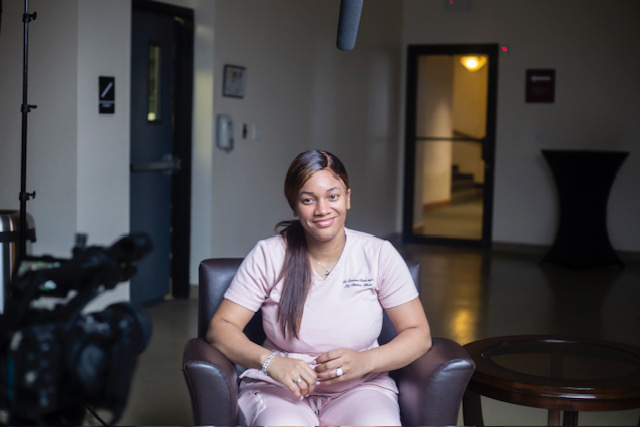
‘It makes me wonder if I’m next too’
Russell got a firsthand understanding of the power dynamics between patients in doctors when she had her own medical emergency during the filming process.
She went to the hospital with chest pains and shortness of breath that came out of nowhere. Doctors diagnosed Russel with a pulmonary embolism — and, chance would have it, they said she would be at high risk if she wanted to become pregnant in the future.
Though she wasn’t planning to have a baby soon, the news hit Russell hard as she thought of her friends’ stories and the film she was in the progress of making. “It makes me wonder if I’m next too.”
Despite Russell’s relatively high level of scientific and medical knowledge, “It makes you feel really scared,” she said. “It’s truly up to the person handling your body if they want to take care of you, want take that extra step.”
Fortunately, Russell said she felt respected and heard in the hospital, and she recovered well. But far too many Black women have stories like her friends,’ and when she finished the 59-minute film in December, she wanted as many people to see it as possible.
First, Russell held a private screening Dec. 13 at the Bronx Museum of the Arts. “We always go to Manhattan or Brooklyn,” she said. “There’s so many institutions in our neighborhood that want to hold space for these events. So I wanted that to be very intentional.”
“You Are Not Alone,” which Russell hopes to make public by late June, is now entered into the festival circuit around the city and country with hopes of landing more showings.
Meanwhile, Russell is already at work on her second project, directing a friend’s documentary about her uncle, Jon Tully, whom Russell called a “secret ninja. Tully once owned a neighborhood martial arts gym in Harlem that is now an event space called Jon’s Dojo.
“There’s so many places for indie films to go, and I just kept pushing it,” Russell said. “You know, I got this far — let’s see what the next leg is going to hold.”
Reach Emily Swanson at eswanson@schnepsmedia.com or (646) 717-0015. For more coverage, follow us on Twitter, Facebook and Instagram @bronxtimes




